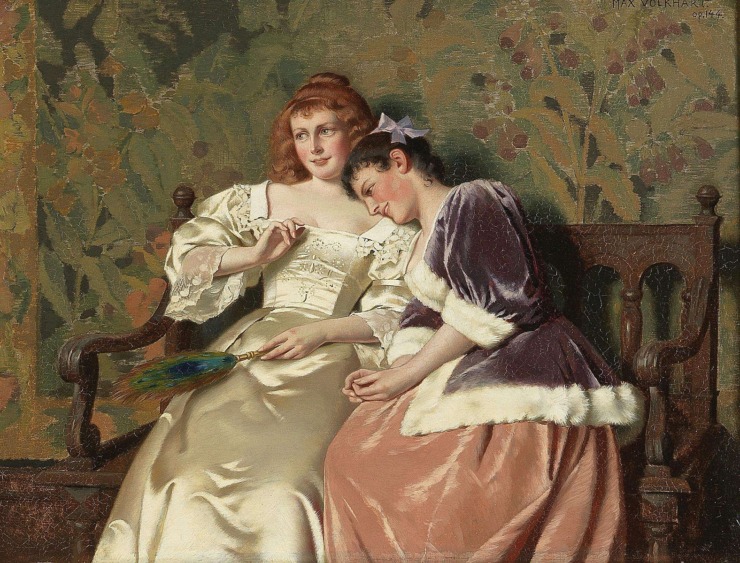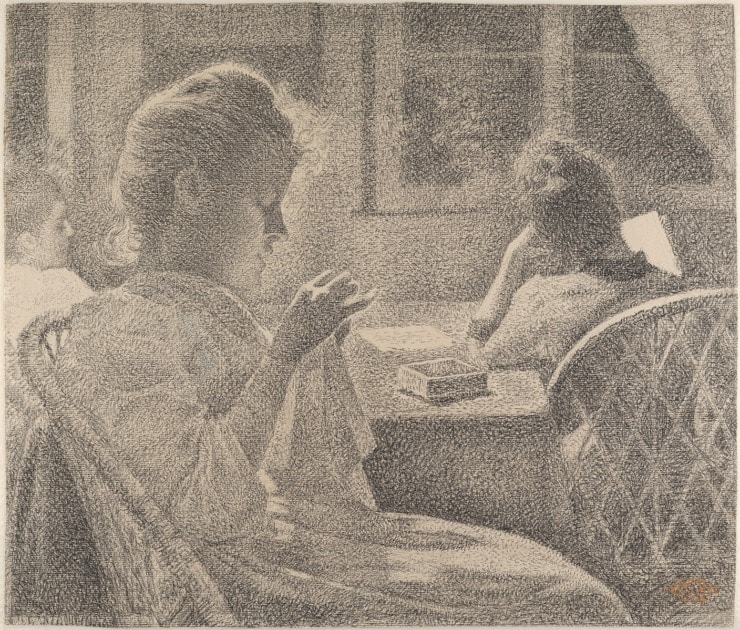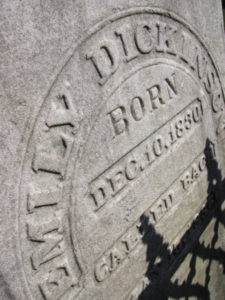< Return to Emily Dickinson Poems
XIX. I Had a Guinea Golden
I HAD A GUINEA GOLDEN.
I had a guinea golden;
I lost it in the sand,
And though the sum was simple,
And pounds were in the land,
Still had it such a value
Unto my frugal eye,
That when I could not find it
I sat me down to sigh.
I had a crimson robin
Who sang full many a day,
But when the woods were painted
He, too, did fly away.
Time brought me other robins, —
Their ballads were the same, —
Still for my missing troubadour
I kept the ‘house at hame.’
I had a star in heaven;
One Pleiad was its name,
And when I was not heeding
It wandered from the same.
And though the skies are crowded,
And all the night ashine,
I do not care about it,
Since none of them are mine.
My story has a moral:
I have a missing friend, —
Pleiad its name, and robin,
And guinea in the sand, —
And when this mournful ditty,
Accompanied with tear,
Shall meet the eye of traitor
In country far from here,
Grant that repentance solemn
May seize upon his mind,
And he no consolation
Beneath the sun may find.
-Emily Dickinson
Enjoy Artistic Representations of “I Had a Guinea Golden” by Emily Dickinson

Two Friends by Max Volkhart, 1924.

Intimacy by Théo van Rysselberghe, 1890.
Listen to these Readings of “I Had a Guinea Golden”
Listen to these Musical Interpretations of “I Had a Guinea Golden” by Emily Dickinson
About Emily Dickinson

Emily Dickinson estate in Amherst Massachusetts
Emily Dickinson was born in Amherst, MA, in 1830, the daughter of state and federal politician Edward Dickinson. A prolific poet, Dickinson was known to draft poems on the backs of envelopes and chocolate wrappers. Nearly 1800 of her poems were discovered by her family following her death, many in 40 handbound volumes she had sewn together, written in her own hand with her famously unorthodox punctuation.

Emily Dickinson & Susan Gilbert
The enigmatic poet is remembered as a recluse, rarely leaving the Dickinson estate. While she did receive callers at her home, conversations were often held from opposite sides of a closed door.
She lived with her sister, Lavinia, while her brother Austin and his wife, Susan Gilbert, lived down a narrow path on the property. Her writing reflects profound loneliness as well as a deep capacity for love and affection, much of which is believed to have been shared with Gilbert.
Her first collection of poems, Poems by Emily Dickinson, was published four years after her death, with Poems: Second Series and Poems: Third Series following in the next several years.

“Called Back”
Like Walt Whitman (who she reportedly never read), she is considered one of the most influential poets in the emergence of a distinctly American poetic voice.
She was born on December 10, 1830, and today visitors to Emily Dickinson’s grave can witness a lasting image of her perspective on life. The etching on her stone marking the date of her death—May 15, 1886—bears the words “Called Back.”
< Return to Emily Dickinson Poems
